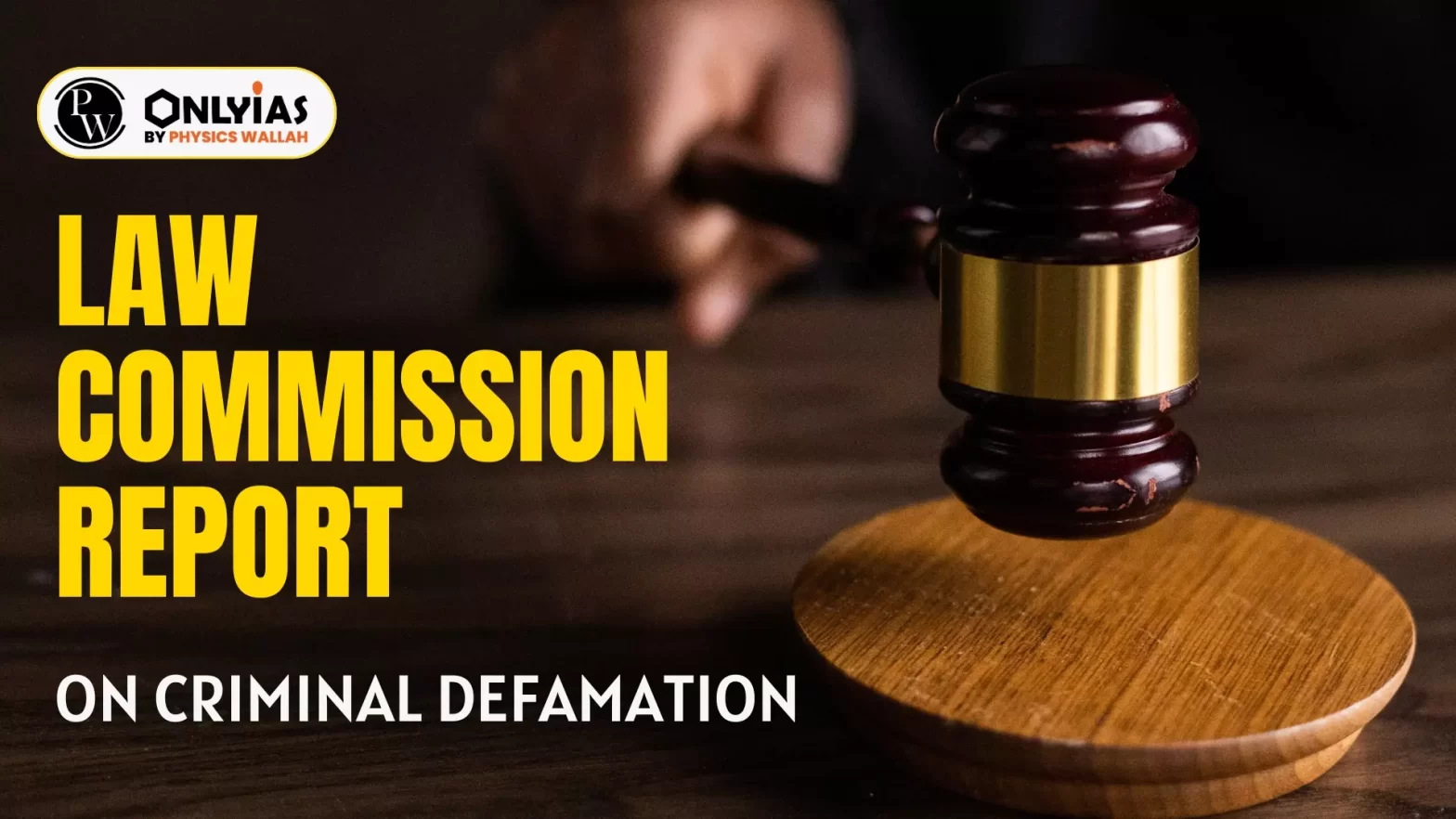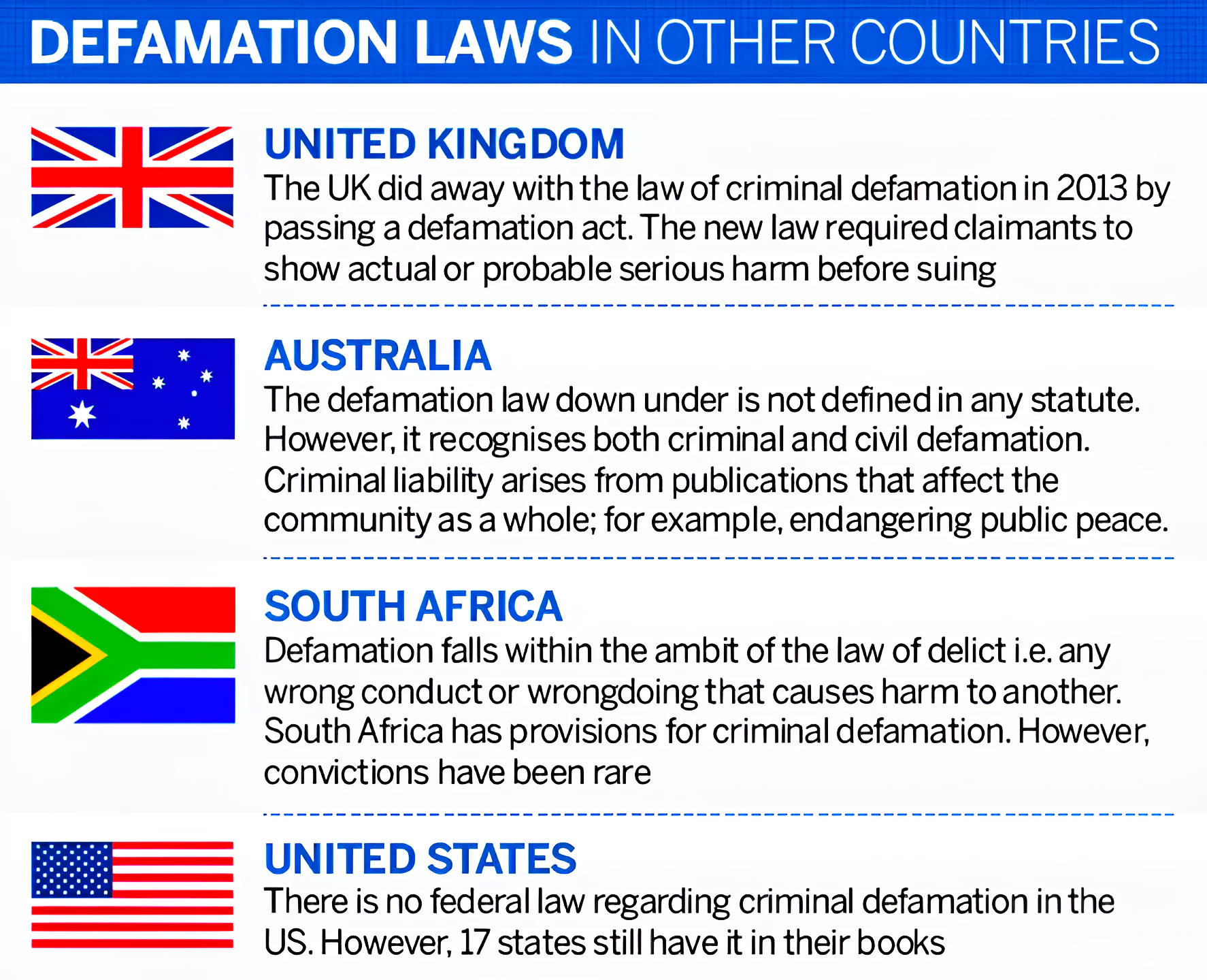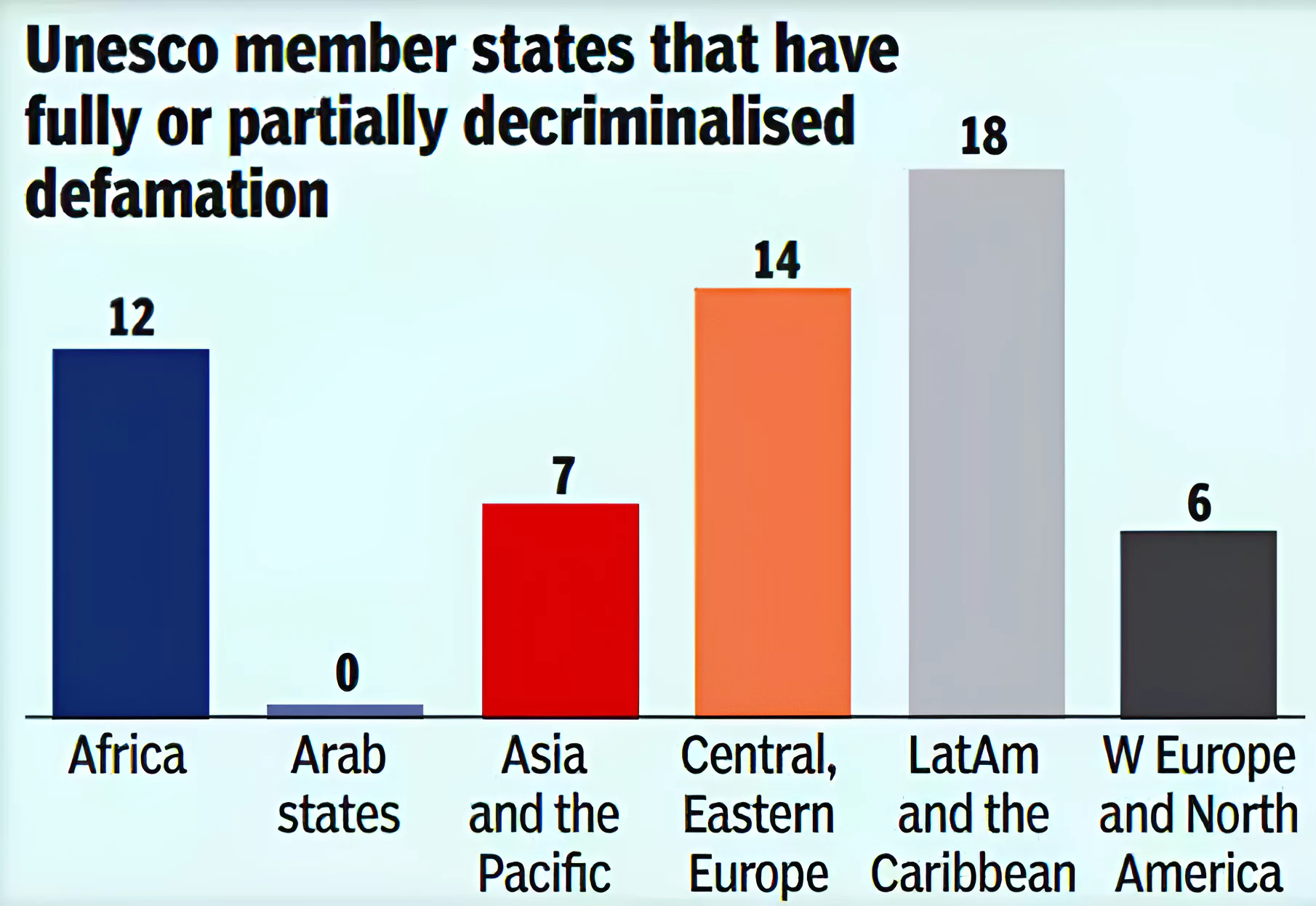![]() 3 Feb 2024
3 Feb 2024
English
हिन्दी

This article is based on the news “Law Commission recommends retaining criminal defamation ‘within the scheme of criminal laws” which was published in the Hindu. Recently, the 22nd Law Commission of India has submitted its report number 285 titled “The Law of Criminal Defamation” to the Government of India.
| Relevancy for Prelims: Recent Criminal Law Reforms, Parliament Passes Three Criminal Law Reform Bills, Law Commission Of India, Information Technology (IT) Act, and Fundamental Rights.
Relevancy for Mains: Defamation Laws in India: Need, Significance, Challenges and Law Commission Report. |
|---|
History of Defamation
|
|---|

 International Practice: The international human rights treaties have emphasised on the right to reputation.
International Practice: The international human rights treaties have emphasised on the right to reputation. Supreme Court’s Verdict on Criminal Defamation Cases
|
|---|
| Mains Question: Discuss Section 66A of IT Act, with reference to its alleged violation of Article 19 of the Constitution. (200 words, 10 marks) |
|---|
| Must Read | |
| NCERT Notes For UPSC | UPSC Daily Current Affairs |
| UPSC Blogs | UPSC Daily Editorials |
| Daily Current Affairs Quiz | Daily Main Answer Writing |
| UPSC Mains Previous Year Papers | UPSC Test Series 2024 |
<div class="new-fform">
</div>